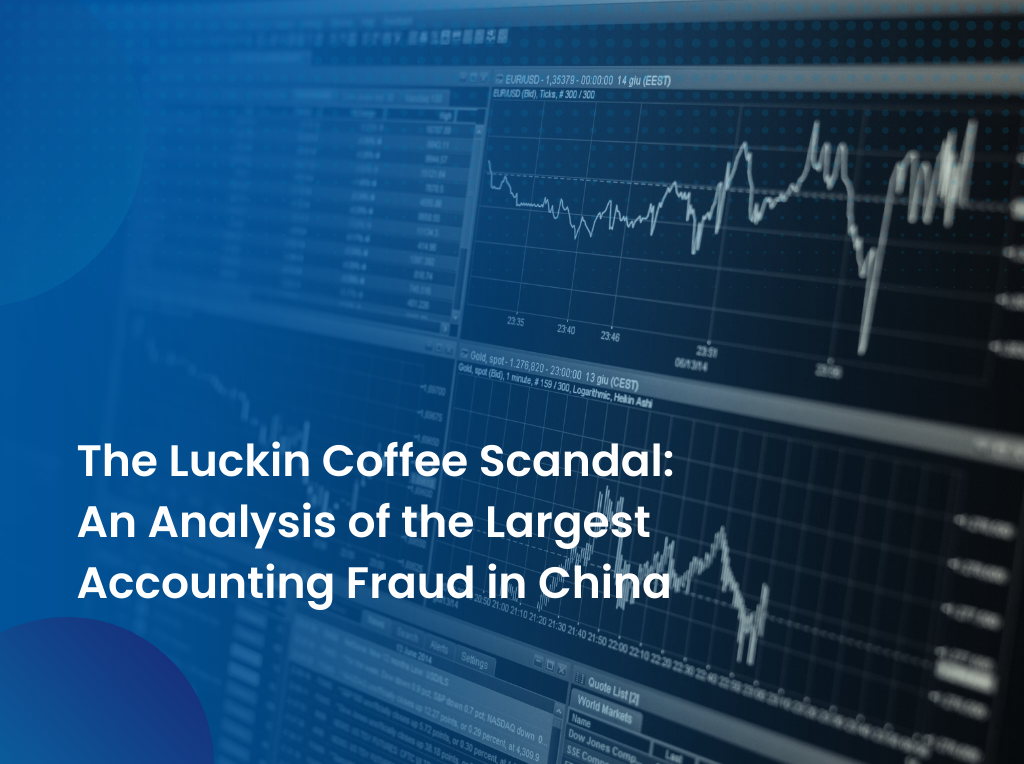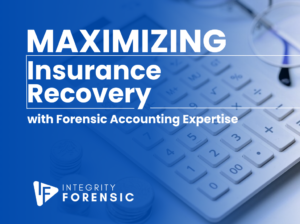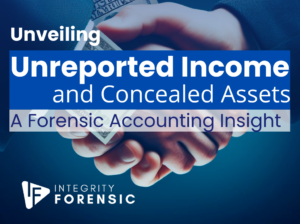Luckin Coffee once hailed as a potential rival to Starbucks in China, experienced a rapid ascent followed by a dramatic downfall. Its ambitious expansion plans and aggressive market strategies fueled its meteoric rise. However, the shocking revelation of a massive accounting fraud brought the company crashing down, tarnishing its reputation and sending shockwaves across the financial landscape.
Overview of the case
Luckin Coffee launched its IPO in May 2019, raising approximately USD600 million from investors. The company touted its rapid growth and disruptive model, attracting significant market attention and pushing its estimated market value to USD5 billion. However, these inflated figures were later revealed to be part of the fabricated financial performance.
Luckin Coffee engaged in three fraudulent schemes involving the fabrication of coupon sales. Employees, their family members, and related companies transferred money to their accounts and purchased coupons, which were then redeemed to create fake orders, artificially inflating sales figures. The total fabricated sales amounted to approximately USD311 million, with the majority coming from sales to third-party shell companies.
To further deceive investors, Luckin fabricated expenses and costs, presenting payments to vendors who did not provide any services or products to the company. These fabricated expenses were designed to match the overstated revenue and create a false impression of financial stability. In total, around USD196 million of fabricated expenses were reported.
The Accounting Scandal and Fraud at Luckin Coffee
Luckin Coffee knowingly made false statements, fabricated financial performance, and misled investors. The company failed to maintain adequate internal controls, manipulated financial. records, and engaged in deceptive practices to inflate its revenue and hide its financial losses. The fraudulent activities were intended to create the illusion of a rapidly growing and profitable business, attracting investors and driving up the company’s stock price.
In January 2020, Muddy Waters released a detailed report accusing Luckin Coffee of engaging in fraudulent activities. The report highlighted evidence of fabricated sales, inflated revenue, and falsified financial records. Muddy Waters’ research brought the scandal to light and caused a significant drop in Luckin Coffee’s stock price.
Investigation and Consequences:
Luckin Coffee’s stock was delisted from the Nasdaq stock exchange in June 2020. The company faced numerous lawsuits from investors seeking to recover their losses. Additionally, the outcome of the Luckin Coffee scandal was significant and far-reaching. Following investigations by the US Securities and Exchange Commission (SEC), the Chinese securities regulator, and China’s State Administration for Market Regulation, it was determined that Luckin’s conduct constituted fraud. As a result, Luckin’s share price plummeted by 81% and trading was initially suspended.
The company conducted its own internal investigation, revealing over $300 million in fabricated revenue. Subsequently, twelve employees involved in the fraudulent schemes were terminated, and the CEO and chairman were removed from their positions. The SEC charged Luckin with fabricating financial statements, leading to a settlement in which Luckin agreed to pay $180 million in monetary penalties, without admitting or denying the allegations. This outcome serves as a stark reminder of the severe consequences and legal ramifications that can arise from engaging in accounting fraud.
The Crucial Role of Forensic Accounting in Exposing the Truth
Forensic accountants played a vital role in unraveling the elaborate Luckin Coffee scandal. Here are some specific ways in which forensic accounting helped in that case:
Detection of Fraudulent Activities:
Forensic accountants employed their expertise to examine Luckin Coffee’s financial records, transactions, and supporting documentation. By analyzing the data, they identified irregularities and inconsistencies that raised suspicions of fraudulent activities. Their meticulous review of sales figures, coupon redemptions, and revenue sources allowed them to uncover the fabricated sales and expenses that were at the core of the accounting fraud.
Data Analysis and Pattern Recognition:
Forensic accountants utilized advanced data analytics techniques to analyze large volumes of financial data. By applying statistical analysis, data mining, and visualization tools, they identified patterns, trends, and outliers that indicated potential fraudulent activities. Through these methods, they could pinpoint discrepancies in Luckin Coffee’s financial records, further supporting the case against the company.
Reconstruction of Financial Records:
In cases of accounting fraud, perpetrators often attempt to cover their tracks by manipulating or destroying financial records. Forensic accountants possess the skills to reconstruct financial records and trace the flow of funds. In the Luckin Coffee scandal, forensic accountants reconstructed the fraudulent transactions, tracing the movement of money and identifying the parties involved in the fraudulent schemes.
Expert Witness Testimony:
Forensic accountants are often called upon to provide expert witness testimony in legal proceedings related to accounting fraud cases. Their specialized knowledge and understanding of financial practices make them valuable resources in courtrooms. In the Luckin Coffee scandal, forensic accountants may have provided expert testimony, presenting their findings, analyses, and conclusions to support the legal case against the company and its executives.
Strengthening Internal Controls and Preventive Measures:
As part of their work, forensic accountants assess the effectiveness of internal controls within an organization. In the aftermath of the Luckin Coffee scandal, forensic accountants likely made recommendations for improving internal controls to prevent similar fraud from occurring in the future. This could include implementing stricter oversight measures, enhancing transparency, and ensuring robust internal audit processes.
Implications for Corporate Governance and Regulatory Oversight
The fallout from the Luckin Coffee scandal triggered significant discussions surrounding corporate governance and regulatory frameworks in China. It underscored the need for robust internal controls, independent audits, and enhanced transparency in financial reporting. Regulatory bodies and market participants responded by intensifying efforts to strengthen corporate governance standards and regulatory mechanisms to prevent future accounting fraud incidents.
Extracting Valuable Lessons for Investors and Businesses
The Luckin Coffee scandal provides invaluable lessons for both investors and businesses. It serves as a powerful reminder of the importance of integrity, transparency, and ethical business practices. Investors should exercise due diligence, conduct independent research, and seek the guidance of forensic accountants when evaluating investment opportunities. Businesses must prioritize strong internal controls, foster a culture of transparency, and conduct regular audits to detect and prevent fraudulent activities.
The fallout from the Luckin Coffee scandal triggered significant discussions surrounding corporate governance and regulatory frameworks in China. It underscored the need for robust internal controls, independent audits, and enhanced transparency in financial reporting. Regulatory bodies and market participants responded by intensifying efforts to strengthen corporate governance standards and regulatory mechanisms to prevent future accounting fraud incidents.
The Luckin Coffee scandal also served as a powerful reminder of the importance of integrity, transparency, and ethical business practices. Investors should exercise due diligence, conduct independent research, and seek the guidance of forensic accountants when evaluating investment opportunities. Businesses must prioritize strong internal controls, foster a culture of transparency, and conduct regular audits to detect and prevent fraudulent activities.
Integrity Forensic is committed to helping clients navigate the complex landscape of financial fraud and accounting irregularities. If you are seeking professional forensic accounting services or assistance in detecting and preventing fraudulent activities, we encourage you to call now for a free consultation: 855-673-9999 or send us a message at questions@integrityforensic.com.





